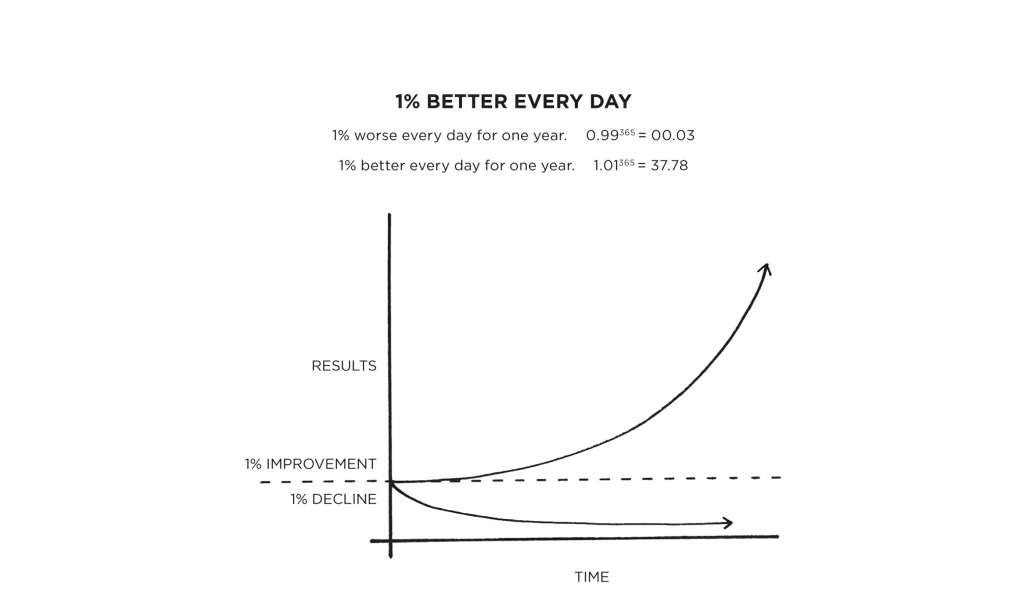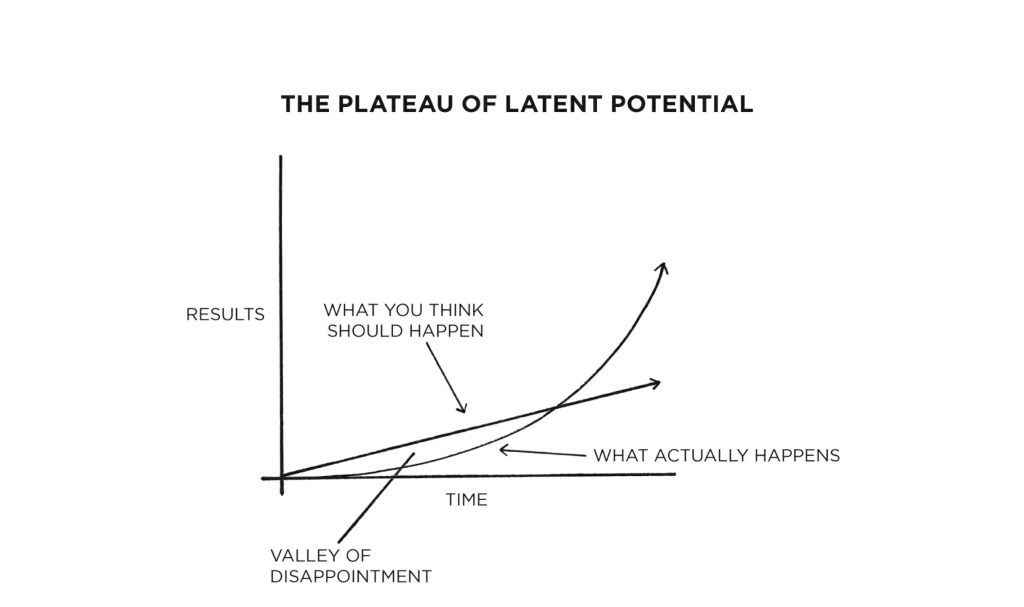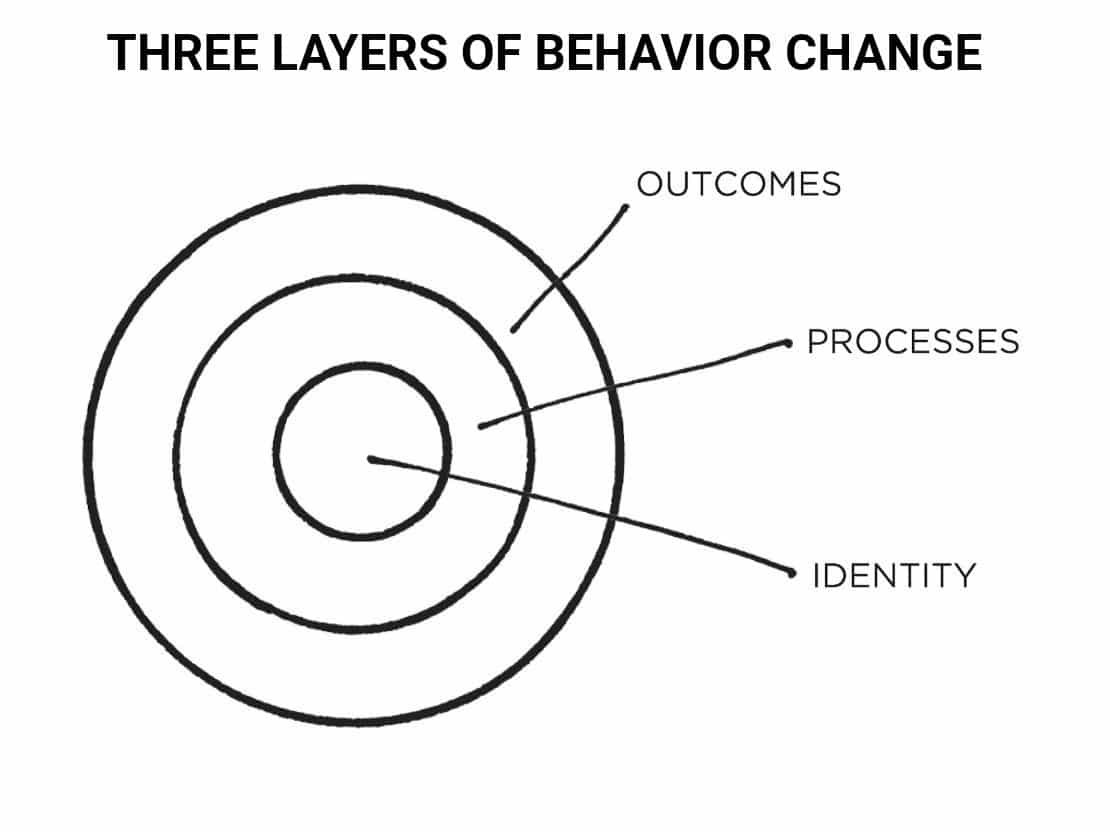Atomic Habits – Book Notes
Read on for Atomic Habits – Book Notes.
Reading should be an integral aspect of anyone’s life. Personally, the book which has had the greatest impact on me this year is Atomic Habits by James Clear. 2020 has been the epitome of chaos and uncertainty, which is why this book- arguably the best in class for building and sustaining habits – is an astonishingly relevant and insightful read. As a result, I’ve tried to distill some of James Clears’ most crucial points and resent them below.
Go buy your copy from Amazon here!
ATOMIC – SMALL BUT POWERFUL
Compound Interest
- If we get 1% better each day by the end of the year, we’ll get x 37 better.
- But if we get 1% worse each day our skill levels will drop to almost 0 by end of the year
- Time magnifies the margin between success and failure. It will multiply whatever you feed it.

Habits are the compound interest of self-improvement
– Progress is not linear, it’s compounding.

4 problems with goal setting
- Winners and losers have the same goals, therefore it can’t be the goal itself that differentiates people.
- Achieving a goal is only a momentary change. Temporary results. We should instead change the systems that caused those results in the first place.
- Goals restrict happiness with the implicit assumption that ‘once I reach the next goal, I’ll be happy’ results in continuously putting off happiness till the next ‘milestone’
- Goals are at odds with long-term-progress. Goals are milestones, systems are a way of life.
-identity change is the most powerful way to implement a new habit.
Habits → Identity
your behaviours are usually a reflection of your identity. What you do is an indication of the type of person you believe that you are – either consciously or non consciously
Every action you take is a vote for the type of person you wish to become.
Whatever your identity is now, you only believe it because you have proof of it.
Before marathon training, ask yourself: What would a marathon athlete do in this situation? eventually, by acting as a runner, you become one.
How to build a habit
1. Cue – triggers the brain to initiate action
2. Craving – provides a motivational force
3. Response – Action or habit we perform
4. Reward – End goal (what will inevitably cause us to repeat this action)
4 laws of behavior change
This how you build a habit and make it stick.
Make it obvious.
- Design your environment around your cues.
- Put fewer steps between yourself and good behaviour and more steps between you and bad behaviour.
Make it attractive.
- Make the prospect of doing this task as enticing to you as possible
Make it easy.
- Prime your environment.
- Friction is a powerful force – if you want to get into the habit of going to the gym in the morning, try taking your gym clothes out you sleep.
- If you want to stick to playing the guitar, use (or buy) a stand and put your guitar on it in the room you most frequent during the day (either your bedroom or the living room).
- Try tying habits you want to gain in with existing habits so that those habits provide a ‘cue’ to initiate the additional desired habit.
Make it Satisfying.
- Our brains have evolved to prioritize immediate rewards over long-term ones.
- Akrasia is the hyperbolic discounting of tasks that don’t provide immediate/short-term rewards.
- Use positive reinforcement so that you will be more likely to repeat good actions in the future.
- What is immediately rewarded is repeated.
- What is immediately punished is avoided.
Misconceptions
- Most of us design outcome-based habits for ourselves when we should instead be focusing on identity change to really enforce the habits we want.
- Don’t give yourself the chore of doing 100 pushups a day, give yourself further proof of your athletic identity by performing many pushups a day.
- Confirmation bias – we tend to believe and readily accept the facts which already support our worldview.
- Doing 100 pushups confirms we are athletic, therefore we are more likely to do it again. It has been ingrained in who we are. So we stick to it.
Quotes
“Build better systems, not goals.
“The score takes care of itself
“The purpose of setting goals is to win the game. The purpose of creating systems is to continue playing the game”
I hope you found this version of Atomic Habits – Book Notes to be informative whilst still being digestible. For a case where these tips can apply, see my article here.

